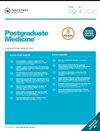Advantages and feasibility of intercostal nerve block in uniportal video-assisted thoracoscopic surgery (VATS).
IF 2.8
4区 医学
Q1 MEDICINE, GENERAL & INTERNAL
引用次数: 1
Abstract
ABSTRACT Objectives Uniportal video-assisted thoracic surgery (VATS) has been successfully used worldwide as a minimally invasive method of thoracoscopic surgery. Although pain was significantly reduced after VATS, acute postoperative pain was still significant. This study aimed to assess the advantages and feasibility of intercostal nerve block in uniportal VATS. Methods We conducted a retrospective analysis of perioperative data from 280 consecutive patients who underwent uniportal VATS at our institution between May 2021 and February 2022. The patients were assigned to either Group A (142 patients with 3 intercostal nerves blocked) or Group B (138 patients with 5 intercostal nerves blocked). We analyzed the perioperative data of both groups and utilized repeated measures ANOVA to determine the difference in postoperative pain between the two groups across time. Results A total of 280 patients underwent successful uniportal VATS during the study period. There were no significant differences between Group A and Group B in terms of age, gender, pulmonary function, arterial blood gas analysis, laterality, incision location, nodule size, nodule location, operative time, blood loss, drainage time, length of hospital stays, tumor stage, or postoperative complications. Furthermore, no surgical or 30-day postoperative mortalities occurred. Using repeated measures ANOVA, we found that the intercostal nerve block had significant effects on the group, time, and interaction terms group × time (P < 0.05). Conclusion Intercostal nerve block is safe and effective, and is associated with simple, accurate, and high patient satisfaction as opposed to other postoperative analgesics in uniportal VATS. Blocking five intercostal nerves may be more beneficial for effective postoperative pain management. Nevertheless, further confirmation through prospective randomized controlled trials is required.肋间神经阻滞在单门静脉胸腔镜手术(VATS)中的优势和可行性。
目的:单门视频辅助胸外科手术(VATS)作为一种微创胸腔镜手术方法已在世界范围内成功应用。虽然VATS术后疼痛明显减轻,但术后急性疼痛仍然明显。本研究旨在探讨肋间神经阻滞治疗单门静脉血管移植的优越性和可行性。方法:我们回顾性分析了2021年5月至2022年2月期间在我院连续接受单门静脉栓塞术的280例患者的围手术期数据。将患者分为A组(142例,3条肋间神经阻滞)和B组(138例,5条肋间神经阻滞)。我们对两组患者围手术期数据进行分析,并利用重复测量方差分析确定两组患者术后疼痛随时间的差异。结果:在研究期间,共有280例患者成功接受了单门静脉注射。A组与B组在年龄、性别、肺功能、动脉血气分析、侧边性、切口位置、结节大小、结节位置、手术时间、出血量、引流时间、住院时间、肿瘤分期、术后并发症等方面无显著差异。此外,没有发生手术死亡或术后30天死亡。通过重复测量方差分析,我们发现肋间神经阻滞在组、时间和相互作用项组×时间上均有显著影响(P)。结论:肋间神经阻滞相对于其他单门静脉麻醉术后镇痛药物是安全有效的,且简单、准确、患者满意度高。阻断5条肋间神经可能更有利于有效的术后疼痛管理。然而,需要通过前瞻性随机对照试验进一步证实。
本文章由计算机程序翻译,如有差异,请以英文原文为准。
求助全文
约1分钟内获得全文
求助全文
来源期刊

Postgraduate Medicine
医学-医学:内科
CiteScore
6.10
自引率
2.40%
发文量
110
审稿时长
6-12 weeks
期刊介绍:
Postgraduate Medicine is a rapid peer-reviewed medical journal published for physicians. Tracing its roots back to 1916, Postgraduate Medicine was established by Charles Mayo, MD, as a peer-to-peer method of communicating the latest research to aid physicians when making treatment decisions, and it maintains that aim to this day. In addition to its core subscriber base, Postgraduate Medicine is distributed to hundreds of US-based physicians within internal medicine and family practice.
 求助内容:
求助内容: 应助结果提醒方式:
应助结果提醒方式:


